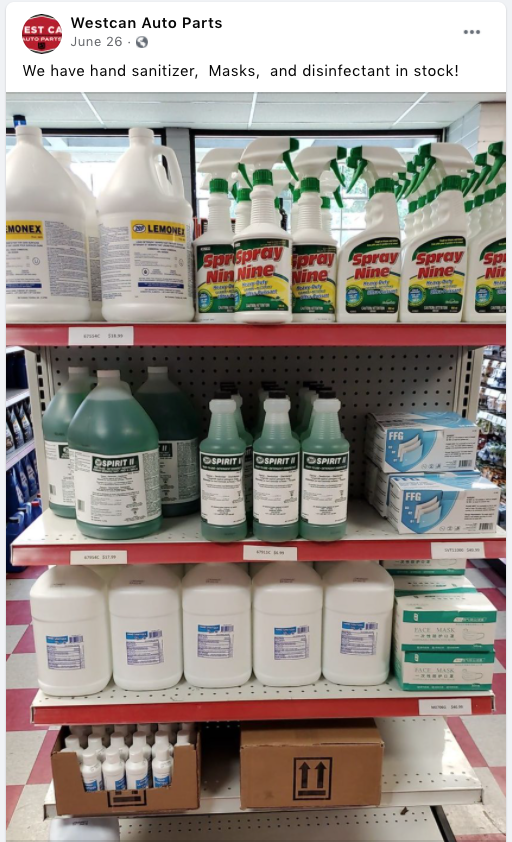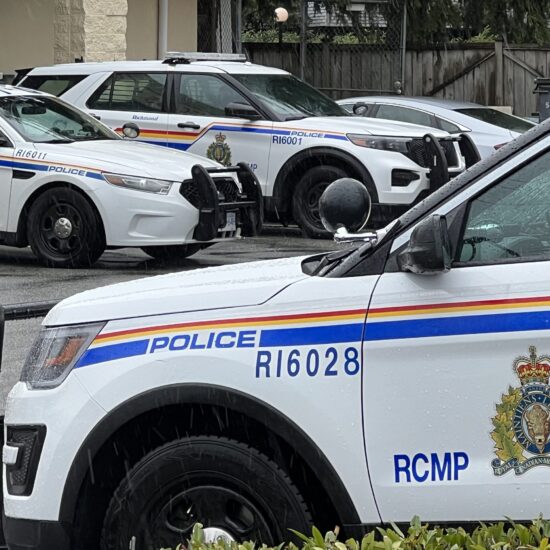
Bob Mackin
British Columbia’s stockpile of emergency medical supplies was so low under the NDP government, that the province’s biggest health authority spent $2.65 million on a no-bid contract with a Burnaby auto parts company.
theBreaker.news obtained documents, under the freedom of information law, that show West-Can Auto Parts invoiced Fraser Health Authority for multiple, bulk orders in March and April, including $732,000 for 200,000 level 2 masks and $750,000 for more than 8,000, 1-gallon jugs of hand sanitizer.

Fraser Health’s Brenda Liggett (left) and Hardeep Chaggar (Fraser Health/Twitter)
Between March 27 and April 13, West-Can also invoiced Fraser Health for surgical masks, safety glasses, paper and plastic bags and thermometers during the first wave of the coronavirus pandemic.
Payment for the contract, let under emergency procurement provisions, was approved by Fraser Health chief financial officer Brenda Liggett and executive director of systems optimization Hardeep Chaggar. Neither Liggett nor Chaggar responded for comment.
“The procurement was undertaken to ensure timely access to personal protection equipment for community sites and health care providers in our region,” Fraser Health spokesman Dixon Tam said in a prepared statement to theBreaker.news. “This procurement order was necessary due to the global shortage of PPE at the beginning of the COVID-19 pandemic. We selected West-Can Auto Parts because they had the ability to purchase, store and distribute specific PPE supplies in a very short timeframe.”
Tam said that Fraser Health had not previously bought any goods from West-Can and has not ordered anything since April. “However, the vendor does continue to provide warehousing and distributing services in respect of PPE supplies to our community sites and health care providers in our region,” Tam said.
West-Can co-owner Rajinder Jhaj, whose name is on the invoices, declined comment.

(West-Can Auto Parts/Facebook)
A February Provincial Health Services Authority memo, obtained by theBreaker.news, sounded the alarm about the low stockpiles across the province. PHSA, which already buys $2 billion-a-year in equipment and materials for hospitals, recommended it become the central hub for the pandemic stockpiles.
At the end of 2019, Fraser Health had $611,855 worth of emergency supplies on hand, compared to $1.56 million in July 2013.
The B.C. government built stockpiles after the SARS and H1N1 pandemics, but stocks were not replenished under the NDP. The PHSA memo said low inventories “will likely not meet B.C.’s requirements which may lead to a public safety risk.”
A month later, the World Health Organization declared the pandemic.
In the May memo, PHSA supply chain vice-president Melinda Mui informed CEO Benoit Morin that some goods Fraser Health bought from West-Can failed at Chilliwack General Hospital. Specifically, the nose bridge wire on FFG disposable 3-layer masks did not stay molded to the bridge of the nose, causing fogging of goggles. “Very hard to work with,” said the report.
“Supply chain [department] was not involved in the purchasing process and as such did not issue any purchase order for the purchase,” Mui wrote. “Any purchase initiated by Supply Chain would have a purchase order for the vendor.”
Mui declined comment because she said she was retiring. She referred theBreaker.news to the PHSA communications department, which did not respond.
theBreaker.news exclusively revealed how, in late March, Premier John Horgan’s deputy minister ordered government workers to hunt for N95 masks in earthquake kits under desks in offices across the province. The masks were earmarked for frontline doctors and nurses.
In July, theBreaker.news and CTV News Vancouver jointly reported that B.C.’s pandemic stockpiles had lost two-thirds of their value since 2013. On the heels of that story, Health Minister Adrian Dix said the B.C. health system had spent more than $114 million on PPE during the first six months of 2020, including $29.55 million on N95 or equivalent respirators. His ministry has refused to release the amount it spent in 2019.

Melinda Mui of PHSA (LinkedIn)
During the Oct. 13 leaders debate, Premier John Horgan said “none of us anticipated this.”
“We didn’t think about it in 2017, 2018 or 2019,” NDP leader Horgan said. “We didn’t think about it in February, when we tabled our balanced budget. We only thought about it in March when it hit us right in the face.”
A scathing Oct. 6 report for the Canadian Federation of Nurses called “Time of Fear: How Canada Failed Our Health Care Workers and Mismanaged COVID-19,” said Canada was woefully unprepared because it largely ignored the lessons of SARS.
“We will never know how many of the more than 21,000 Canadian health care workers infected with COVID‐19 might have been kept safe had there been sufficient stockpiles at a precautionary level,” the report said. “What we do know, as outlined earlier in this report, is that jurisdictions like China, Hong Kong and Taiwan, that took a precautionary approach to worker safety, have significantly lower levels of health worker infections.”
Support theBreaker.news for as low as $2 a month on Patreon. Find out how. Click here.











